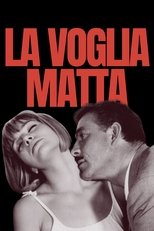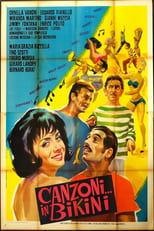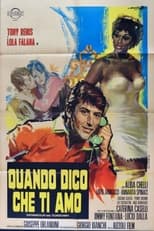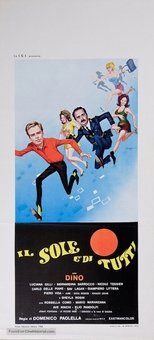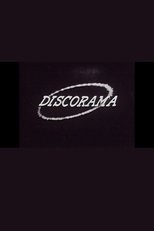Jimmy Fontana
¿Quién es Jimmy Fontana?
Born Enrico Sbriccoli in Camerino, Italy, after graduating from high school, he moved to Rome to study Economics. In his spare time, Fontana taught himself bass and attend local jazz venues. Eventually, he dedicated himself completely to music and adopted the stage name Jimmy Fontana in homage to one of his heroes, American musician Jimmy Giuffre. (The surname "Fontana" was arbitrarily chosen out of the phone book).
In the early 1950s he started his own jazz band, Fontana and his Trio, with piano, bass and drums, and around that time he met Leda, who became his wife and with whom they had four children: Luigi, Roberto, Andrea, and Paola.
At the end of the 1950s, he turned to light music and began his solo career. His first success was "Diavolo" ("Devil") that won him third place in the Festival of Barcelona. With his song "Bevo" ("Drink"), in 1960, he won the Burlamacco Gold, a music competition in Viareggio. His first participation in the Festival of Sanremo came in 1961 with "Lady luna" ("Lady moon"), written by Armando Trovajoli and Dino Verde. His first single with RCA is "Non te ne andare" ("Don't go"), released in 1963 and written by Gianni Meccia and Lilli Greek.
In 1965, Fontana had his major success with "Il mondo" ("The world"), a song composed by Fontana and Carlo Pes, and arranged by Ennio Morricone, with lyrics by Gianni Meccia, which reached the top of the charts in Italy and other countries in Europe and charted in Latin America as well. The same year, he made his debut as an actor, appearing in two musicarelli, which are movies heavily featuring musical numbers, titled Viale della canzone ("Avenue of song") and 008 Operazione ritmo ("008 Operation rhythm").
Jimmy Fontana's hits include "La mia serenata" that won the Disco per l'estate Festival in 1967.
At the 1968 Cantagiro summer festival, Fontana sang a cover version of the Tom Jones hit "Delilah", titled "La nostra favola." The song reached 2nd place in the Italian hit parade.
In 1971, the song "Che sarà", composed by Fontana with lyrics by Franco Migliacci, was performed by José Feliciano with the Ricchi e Poveri group at that year's Sanremo Music Festival, winning 2nd prize. It eventually became one of the biggest pop music hits of the era in Italy and abroad.
After "Che sarà", Fontana stopped writing songs, but continued to tour around Italy for another decade. In 1982 his son Luigi wrote the first part of the music for a new song and this fact brought Jimmy back to compose and create again: he completed the song "Beguine" and sung it at 1982 Sanremo Music Festival, joining the 6th place; Luigi was on stage with his father in Sanremo and from that moment on they were performing together around Italy and abroad until Jimmy died. They were joined in 1992 by Andrea (Jimmy's 3rd son), creating some beautiful and emotional "family shows". Jimmy Fontana also continued appearing on TV shows until his old age. He died peacefully at his home in Rome, a few months before his 79th birthday, while still planning concert tours.
Source: Article "Jimmy Fontana" from Wikipedia in English, licensed under CC-BY-SA 3.0.
Trabajos destacados
Géneros más habituales en las películas de Jimmy Fontana
Géneros más habituales en las series de Jimmy Fontana
Compañeros de trabajo recientes de Jimmy Fontana
Las imágenes y retratos de actores y actrices mostrados en este sitio web son obtenidos de la base de datos pública de The Movie Database (TMDb), utilizada bajo los términos y condiciones de dicha plataforma. En caso de que alguna imagen o fotografía sea incorrecta, ofensiva, o pueda infringir derechos de imagen o copyright, puede ser editada o eliminada directamente en TMDb. Esto provocará su eliminación automática en este sitio web. Adicionalmente, si usted desea solicitar la eliminación de una imagen directamente en nuestro sitio web, puede utilizar el formulario de contacto ubicado al pie de la página. Atenderemos su solicitud de manera expedita y tomaremos las medidas necesarias para garantizar el cumplimiento de los derechos aplicables.
The images and portraits of actors and actresses displayed on this website are sourced from the public database The Movie Database (TMDb), used in accordance with its terms and conditions. If any image or photograph is incorrect, offensive, or may infringe image rights or copyright, it can be edited or removed directly on TMDb. This will automatically result in its removal from this website. Additionally, if you wish to request the removal of an image directly from our website, you may use the contact form located at the bottom of the page. We will promptly address your request and take the necessary measures to ensure compliance with applicable rights.
